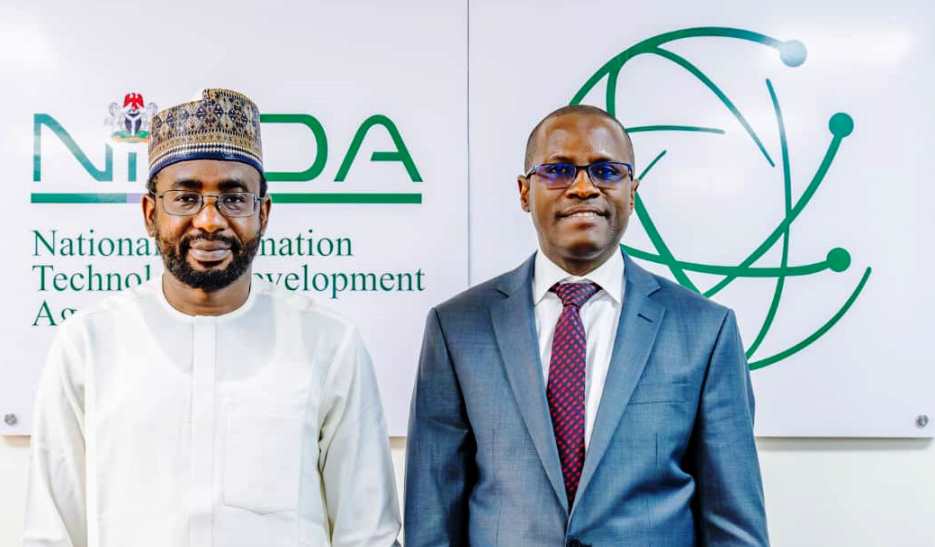The Nigerian media community and beyond have been gripped by a sense of shock and sorrow following the tragic death of Somtochukwu Maduagwu, a respected Arise TV news anchor. Her loss has sparked deep reflections, not only among her family members but also across news circles, workplaces, and among younger Nigerians who followed her career and story closely.
According to reports, the 29-year-old Somtochukwu allegedly sustained fatal injuries after a fall from a three-story building in the Katampe area of Abuja. The incident, which occurred under circumstances still being clarified by officials and family members, has drawn widespread attention and raised fresh conversations on mental health, family decisions, and the journey of returnees from the diaspora.
In exclusive conversations with NOWAHALAZONE, Obi Maduagwu—Somtochukwu’s uncle—shed light on key moments leading up to her passing. He disclosed that Somtochukwu’s father had discouraged her from returning to Nigeria, urging her to remain in the United Kingdom for her career and safety. Before making her way back, Somtochukwu, along with her two younger siblings, had been living and working in the UK—a common choice for many Nigerians and West Africans seeking better economic opportunities or safer environments abroad.
“It was a devastating shock to the family,” Obi recalled. He was reportedly the first family member contacted after news broke about Somtochukwu’s death, since her father was working offshore on an oil rig at the time and unavailable in Nigeria. “They called me about my niece. My other nieces—children of my immediate younger sister—are in Abuja too. Someone used Sommie’s phone to reach out and explain what had happened to their sister.”
Obi described the initial disbelief that comes with tragic news in Nigeria, where distrust of phone scams is common. “I told her to go to Sommie’s place and confirm. Sometimes, scammers may call you with fake stories about loved ones in distress. She went, saw what was happening, asked questions, and they confirmed it.”
To officially verify, the family member proceeded to the National Hospital in Abuja. “She saw her and immediately sent evidence, including pictures from the hospital and the building where she fell. That’s when it really sank in—I started thinking about what to do next,” Obi explained.
For the Maduagwu family, breaking the news to Somtochukwu’s parents was fraught with difficulty. Her father was offshore, and her mother was away at work. “If I had tried to shield them from the truth, it could have leaked online at any time. So, I coordinated with her elder sister’s husband in Abuja to bring her mother home before informing her,” Obi recounted, underlining the pains Nigerian families face in moments of crisis when loved ones are far-flung due to work or migration.
Obi said he hesitated to explain everything to Somtochukwu’s mother at first. Instead, he reached out to her brother-in-law, provided details, and requested his urgent presence at the hospital. “He rushed over, confirmed everything, and then we were able to get her back. Even before getting the news, she sensed something was amiss,” he added.
Reflecting on Somtochukwu’s personality, Obi described her as fiercely independent and strong-willed. “She was the eldest of three, with a younger brother and sister. From a young age, whatever Somtochukwu decided to do, she fully pursued. Once her mind was set, convincing her otherwise was almost impossible.”
After completing her studies in the UK—a path many Nigerian graduates aspire to—Somtochukwu worked there for about two years. Yet, at a time when significant numbers of her peers were seeking citizenship or economic refuge abroad, she announced her intention to come back to Nigeria. Her father, like many Nigerian parents with children studying overseas, objected out of concern for security and future prospects. “He wanted her to stay back, but she was insistent—she wanted to return home and contribute to making Nigeria work,” Obi narrated.
Somtochukwu’s return pointedly contrasted the growing ‘Japa’ trend, where young Nigerians increasingly migrate in search of better lives, driven by insecurity, unemployment, and infrastructural degradation. Her choice represented, for many, a bold hope—that passionate, educated returnees could make a difference in Nigeria’s challenging climate. As a news anchor, her work further amplified her voice on national issues, reaching scores of viewers weekly across the country and West Africa.
Her uncle’s recollections echo broader concerns about the emotional and psychological pressures faced by young professionals in Nigeria, particularly returnees adjusting from life abroad. “A lot of us don’t talk about these things,” noted Lagos-based counselor, Chinyere Nwosu, in an interview about diaspora returnees. “The transition can be tough, with cultural shocks, work frustrations, and limited support systems. It’s important families and organisations are prepared to support people resettling.”
Nigerian mental health experts have also raised the alarm about rising stress and depression rates among young professionals. According to a 2023 World Health Organization (WHO) report, Nigeria has one of the highest rates of depression in Africa, aggravated by underfunded mental health services and persistent social stigma, making it hard for individuals—even public personalities—to seek support early. Other West African countries, including Ghana, face similar challenges, with social workers and advocates increasingly urging for broad reform and more investments in mental healthcare.
As the nation mourns Somtochukwu Maduagwu, her story sheds light on the dreams, struggles, and sacrifices of a generation caught between the promise of home and the challenges that have driven many to pursue life abroad. Her return, optimism, and tragic passing have reignited debates on how Nigeria (and broader West Africa) can better support its young talents, especially those returning from the diaspora.
As the investigation into her death continues, colleagues, family members, and viewers have poured out tributes across social media, highlighting her professionalism, drive, and unwavering hope for a better Nigeria. The Arise TV newsroom has pledged to honour her legacy by advocating for improved working conditions and stronger mental health awareness across African media organisations.
What lessons do you draw from Somtochukwu’s story? Should more be done to support Nigerians and West Africans returning home after years abroad, especially around mental health and resettlement? Share your thoughts, experiences, or tributes in the comments section and connect with us for ongoing updates.
We want to hear your story! If you have insights, memories, or tributes regarding Somtochukwu’s journey—or experiences about returning to Nigeria or West Africa from the diaspora—we invite you to share your perspective. Your story can make a difference.
Have a story you want to share or sell? We’d love to hear from you! Email us at story@nowahalazone.com to get your story featured or discuss story sales.
For general support, reach out at support@nowahalazone.com.
Follow us on Facebook, X (Twitter), and Instagram for more updates!










